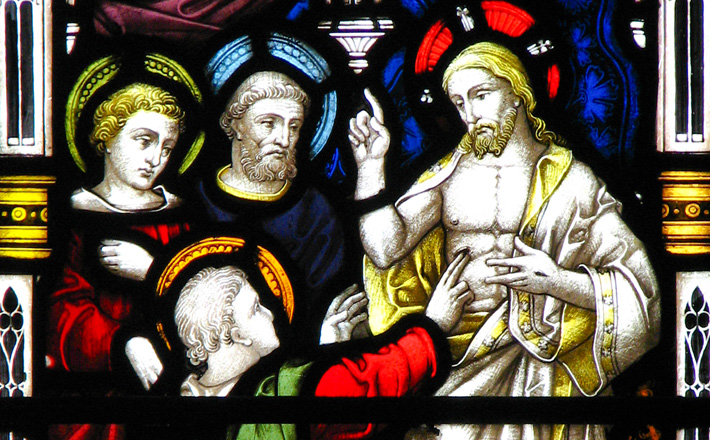Commentary on Psalm 16
Psalm 16 opens with a verse that expresses its main theme: “Protect me, O God, for in you I take refuge” (verse 1).
The plea for God to “protect me” is common in the Psalter (similar petitions appear in Psalms 17:8; 25:20; 86:2; 140:5; and 141:9). The word translated “protect” is elsewhere translated “keep,” as in Psalm 121:3, 5, 7, and 8. There it refers to God keeping the psalmist from harm while in route to the place of worship.
The term also describes the Lord as “your keeper” (121:5) and thus serves as a label or title for God. Genesis 4 includes this word in Cain’s denial that he is appointed to watch over his brother (his brother’s “keeper”). Although there is no direct connection between Psalm 16 and Genesis 4, the use of the term is interesting because in the Psalter God clearly protects the psalmist in a way no human can do. Thus, the psalmist in Psalm 16 trusts in God as “keeper,” and the psalmist recognizes God as the only one able to keep him or her from harm.
In the second half of verse 1, the psalmist gives the rationale for the opening petition. He or she has sought “refuge” in God. This language identifies a key concept in this psalm, but it also represents one of the most important theological expressions in the Psalter.
The expression “take refuge” is a rich metaphor that draws on the image of hiding out for safety, as David did when pursued by Saul (1 Samuel 24). Some scholars suggest the language here refers specifically to seeking God’s protection in the temple. What is clear is that “to take refuge” in the Lord essentially means to rely on God for safety and security. The expression therefore is related closely to declarations of trust (see Psalm 25:2-3, 20).
Verse 2 continues and expands the declaration of trust that began in verse 1. The psalmist says to the Lord, “you are my Lord.” Lord is the common word for a superior; for example, subjects refer to the king as “Lord” (1 Samuel 26:17). Thus, the psalmist here proclaims that the Lord (Israel’s God) is the authority in his or her life, the one who gives direction and purpose.
The meaning of verse 2b is uncertain, but most scholars support a translation (as in NIV and NRSV) that enhances the ideas of 16:1-2a: there is no good apart from God (NRSV, “I have no good apart from you”). The line seems to say essentially what Psalm 23:1b says, “I shall not want” (if the Lord guides me). The Lord is the source of life and all goodness.
The meaning of verses 3-4 is uncertain, as the notes in NRSV and NIV indicate. The expression translated “holy ones” or “saints” (verse 3) in these two translations may instead refer to other gods, as the New American Bible indicates. This understanding of verse 3 would then make sense of verse 4 which seems to denounce the worship of other gods. Although this segment of the psalm is difficult to interpret, it seems to fit the rest of the psalm in its insistence that the only true source of life is the one God in whom the psalmist trusts.
When verse 5 refers to God as “my cup” it uses language and an idea similar to Psalm 23:5. This verse and the next, however, draw more directly from ideas in Joshua 13-19. The word “portion” refers to the share of the land given to every Israelite (Joshua 19:9). The term “lot” also appears in Joshua to refer to the method of apportioning the land (Joshua 14:2).
Verse six suggests similar ideas. The boundary of inherited land is generous. But the psalmist makes the point that the Lord is the inheritance, the portion, the share in the promise. This may mean that the one who spoke these words was a Levite, one who did not inherit property (see Joshua 13:33). But this identification is not necessary to interpret the psalm. The fact that the Levites had the Lord as their “portion” serves as a model of piety for all the people of God and the psalmist, Levite or not, professes this identity with God.
Verses 7 and 8 speak of the tangible results of having the Lord as an inheritance and of seeking refuge and trusting in God. The psalmist worships (“I bless”) and receives instruction and guidance from God who is “always before me” (verse 8).
The psalm concludes with three verses that reaffirm and expand the conviction with which the psalm began. When the psalmist speaks of “resting secure” (verse 9) the word for secure is a form of the word that means “to trust.” Thus, as McCann says, “security for the psalmist is not an achievement but a result of a life entrusted to God.”1
Evidence of this security is in the psalmist’s continuing in life before God, which is the opposite of being given up to Sheol or the Pit, references to the abode of the dead and separation from God (verse 10). The source of life and security is the Creator of life. So the psalmist speaks of the divine presence as the place that is most desired, that gives “fullness of joy” (verse 11).
From beginning to end Psalm 16 testifies to a life that finds its ultimate rest in God’s protective presence. It speaks against the notion that security and satisfaction come from material wealth or human accomplishments. Indeed, it insists all that is good and all that is needed are found in the presence of God, the one the psalmist claims as refuge. The psalm is fitting for the Easter season both because it provides support for the notion of resurrection (verses 10-11) and it identifies God as one who creates, supports, and protects life for all who trust in him.
Notes:
1 J. Clinton McCann, Jr., “The Book of Psalms,” in The New Interpreter’s Bible, Vol. IV (Ed. Leander E. Keck; Nashville: Abingdon Press, 1996), p. 737.


April 27, 2014